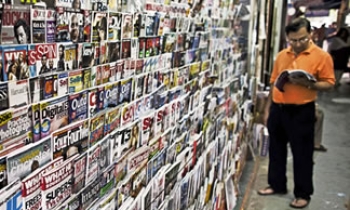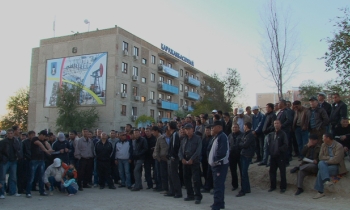News International chairman Les Hinton has accused 'citizen journalists" of amateurism, misrepresentation and failing to emulate the standards of traditional news organisations.
Using the example of coverage of this year's hurricane in New Orleans - where he said bloggers were responsible for "bad information", including reports of unrest and rape that were not later substantiated - he called on journalists to maintain their status as experts to bolster trust among readers.
"In New Orleans a lot of bad information came from bloggers and amateur witnesses, all newly empowered with instant communication," he said. "We must be experts at getting it right and being reliable."
Mr Hinton, who serves as Rupert Murdoch's chief lieutenant in London overseeing the Times, Sunday Times, Sun and News of the World, was speaking last night at the opening of the Society of Editors conference in Windermere.
He said it was important for journalists to avoid cynicism and to reflect on the extent to which they themselves had been responsible for a breakdown in trust between readers and newspapers.
"We have always seen ourselves as sceptics, which is a good thing, but are too many of us becoming cynics? Cyncism is infectious, but are we catching it from our readers or are they catching it from us?"
With so much information out there, people needed journalists more than ever to put things into context, he said.
"In the 21st century avalanche of media, people have never been so bombarded with information. They must trust us to provide understanding and context. Context is becoming so important."
But there was no cause for complacency, Mr Hinton argued, when citizen journalism was gaining readers' attention, often to the detriment of newspapers.
"Citizen blogs actually are stealing our audiences, at least our audiences' time. Their tanks are on our lawns. This brave new world requires new disciplines and skills. But we're still finding out what people want from new media operations, and so are they."
He said it was crucial newspapers found imaginative ways to build their online offering in order to make money from the web.
"If you simply put your newspaper on the web, then you are never going to be able to get the same amount of money per visit. There's just not enough out there."
He said many newspaper companies had been slow to adapt to the challenges of the internet because they were worried about online operations eating into their profits.
"People have wrestled with the quandary of how you can grow aggressively your online presence without at the same time making your company less valuable.
"The fact is there are ways of doing both, and, simply put, it's a question of developing websites with your brands that add to what print does as opposed to simply replicating it."
One problem newspapers were facing was that a "freeloading generation" used to getting content for nothing were harder to convert into paying customers, he said.
"Most of what they want to know is free. You have to make a pretty good case to them to pay �220 a year for a conventional newspaper."
But in the short term he could not see national newspapers going free, in spite of the success of Metro, the freesheet that has a total circulation of around 1m in most of the UK's major cities.
"It's hard to imagine at this stage any paper that's thriving going free," Mr Hinton said. "The problem is, physically, distribution of national newspapers is really tricky to do. But [going free] is not impossible. It's vastly more expensive to do. The key is in online developing an online presence that can raise revenue."









